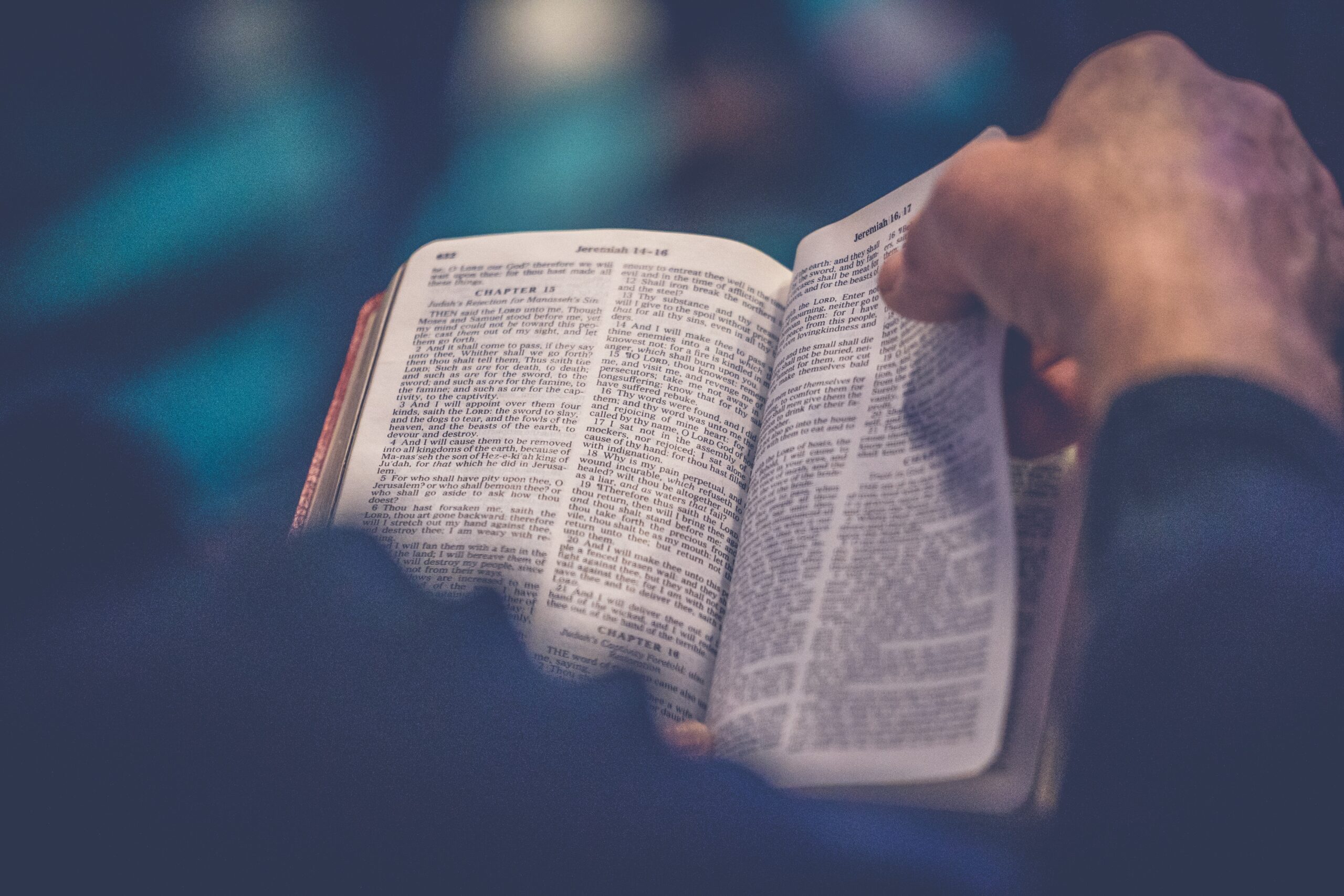If there is one human limitation that we would all love to remove, I bet it will be our ignorance of the future.
Many of our fears and anxieties as individuals arise from our ignorance of what the future brings. We can all acknowledge that thousands of factors that affect our lives here on earth are outside our control. Therefore, we panic, overwhelmed by fear and anxiety.
Nations also panic. We do our best every election cycle to vote for the best candidate (if we live in a democratic nation), but what they do after the election is up in the air. Will they be faithful to their promises?
It gets worse when the person that wins the election is, in our judgment, bad for the country. What can we expect? Won’t his policies wreck the nation? Is it time to flee? Is this not a journey to doom and gloom- to the abyss?
COVID-19 has exposed our fear and anxiety problem. Almost every nation panicked. Those we trusted as leaders and expected to be brave and rational panicked. Ignorance of what the future holds is not a middle class or lower class problem.
The church also has its anxiety fits. Will this government be a totalitarian government where religious liberty will be gone with the winds? Won’t the current cultural developments make it harder for the gospel to penetrate culture? Will the next generation be faithful to the message?
We don’t know the future, so we panic as individuals, nations, churches, and communities. Do we have any other options? What can we do but panic and live in fear and anxiety?

Unknown to us, known to God
While the future is unknown to us, they are not absolutely unknown. Scriptures tell us that God knows the future.
Isaiah 44-46 contains the greatest diatribe against idolatry in the Scriptures. Israel, the people of God, were enamored with the nations’ idols, rejecting their God to serve them. But what do they see in these idols? Why would they leave their God to serve the idols of the nations?
God called them to account in these passages. He called the idols to court. God insisted that he is the only God and these idols are nothing (Isaiah 44:6). God has given his conclusion, and he went on to argue his case.
One of his premises is that he alone could declare the future. He alone could “foretell what will come” (Isaiah 44:7). If the idols disagreed, they had the opportunity to make their case. Idols are worthless, the creation of man (44:9-20). They know and understand nothing.
A chapter later (Isaiah 45), God made the same case. He called the nations and their idols to court. He insisted once more that there is no God beside him because he is the only one who can foretell the future (Isaiah 45:20-22). He does it again in chapter 46: “I am God, and there is no other; I am God, and there is none like me. I make known the end from the beginning, from ancient times, what is still to come.”
Here is Isaiah 42:9: “See, the former things have taken place, and new things I declare; before they spring up into being I announce them to you.”

Why God knows the future
But why does God know the future when no one can?
God knows the future exhaustively because he planned the future and actively executes his plans. That is, his knowledge omniscience (knowledge of all things) proceeds from his sovereignty (control of all things).
After declaring that he alone is God because he can declare the future, verses later, God told us why: “I am the LORD…who carries out the words of his prophets and fulfills the predictions of his messengers” (Isaiah 44:26).
Why can God’s prophets speak confidently about the future? Because the God that told them about the future is the one executing the future. It’s like a Dad who told his little son that there would be a new car in their garage the next day. The boy may think his father is a prophet, but in reality, he is only a man with millions in his account.
God can speak confidently about the future because he ordains and orders it.
Here is Isaiah 46:10: “I make known the end from the beginning, from ancient times what is still to come. I say: My purpose will stand, and I will do all that I please.”
God reveals the end from the beginning because his plan for the end cannot be thwarted. Since his purpose will stand, prophecy is nothing more than God revealing his purpose to us. God can tell us his purpose in the future because his purpose will stand, and he will do all that he pleases.
In this regard, I especially love Isaiah 37:26:
“Have you not heard? Long ago I ordained it. In days of old I planned it; now I have brought it to pass, that you have turned fortified cities into piles of stone.”
God ordains, plans, and then executes. He knows the future exhaustively (without any limitation) because he ordains, plans, and executes.
Some Case Studies
God prophesied that Abraham’s descendants would be enslaved in a foreign land for 400 years, after which he would punish the nation that enslaved them, and they would go out with great possessions.
How did his descendants get into Egypt? Joseph told us it was God that sent him ahead of his brothers to Egypt (Genesis 45:5, 8). Through Joseph, Abraham’s descendants became established in Israel.
When it was time to free them, God chose and called Moses (Exodus 3, 4). How did God punish them? He hardened Pharaoh’s heart and sent plagues on them (Exodus 4:21). How did they leave with much possessions? He moved the heart of the Egyptians to give them their possessions (Exodus 12:36).
God could give that prophecy to Abraham because he has ordained and planned that all the above would happen, and when it was the time (as he has decided), he executed them. He knows the future because he plans it.
He could prophesy that Israel and Judah would go into captivity (Hosea 8:9-10; Jeremiah 20-22) because he is the one that would raise Assyria (Isaiah 8, 10) and Babylon (Habakkuk 1) to take his people captive.
He could prophesy about the virgin that will give birth (Isaiah 9) because he would visit the woman in the fullness of time and cause her to give birth (Mathew 1:18-21).
These three examples are enough to illustrate the point.
The Sovereign Lord of all
God is sovereign over all of history. His sovereignty over history is why he could prophesy about the future. He is Lord over everything.
By everything, I mean everything. He is sovereign over Kings (Daniel 2:21), the peoples of the earth and the powers of heaven (Daniel 4:35), animals (Mathew 10:19-21), death and life (Deuteronomy 32:39), diseases (Exodus 4:11), natural disasters (Psalms 105:16, 107), chance events (Proverbs 16:33), man’s plans (Proverbs 16:9), the wicked (Proverbs 16:1), calamities and good (Lamentations 3:37,38, Amos 3:6), light and darkness (Isaiah 45:7, times and seasons (Daniel 2:21), the womb (1 Samuel 1:5), poverty and wealth (1 Samuel 2:6-8), the plans of nations (Psalms 33:9-11), and the days of man (Psalms 139:16).
He is sovereign over all. He is the Lord of history because he is the Lord of every minute detail in history’s outworking. “Our Lord is in heaven, he does whatever pleases him” (Psalms 115:3). “The LORD works out everything for his own ends” (Proverbs 16:4). “No one can hold back his hand or say to him, “What have you done?” (Daniel 4:35)
God rules over all things, and he works in all the affairs in heaven and earth to bring about his ordained plans. All the things that are unknown to us are known to him. Everything outside of our control is under his. Nothing escapes his sovereignty.
The Lordship of Christ
Daniel prophesied about one like the son of man who would be led into the presence of the Ancient of Days to receive “authority, glory, and sovereign power” so that “all peoples, nations, and men of every language worshipped him” (Daniel 7:13-14).
The son of man of Daniel 7 is no other than Jesus Christ.
After he had humbled himself and became obedient to death on the cross, “God exalted him to the highest place and gave him the name that is above every name, that at the name of Jesus every knee should bow in heaven and on earth and under the earth, and every tongue confess that Jesus Christ is Lord, to the glory of God the Father” (Philippians 2:9-11).
God has put everything under Christ (1 Corinthians 15:20-28). Everything includes things on earth and in heaven, things visible and invisible, thrones, powers, rulers, authorities, and the church (Colossians 1:15-23).
When Christ resurrected, he sat at the right hand of the Father far above “all rule and authority, power and dominion, and every title that can be given, not only in the present age but also in the one to come” (Ephesians 1:20-22). He was crowned with glory and honor (Hebrews 2:8), with angels, authorities, and powers in submission to him (1 Peter 3:22).
No wonder he told his disciples that all authority in heaven and earth is his (Mathew 28:18). He is the son of man of Daniel 7 and the Son of God of Psalms 2, who will rule over all the nations with a rod of iron.
To summarize, God’s sovereignty over all things (as we have seen) is now being established (has been since the resurrection) through Christ, our Lord, and Savior.

Why we don’t need to panic
Therefore, when Christ tells us about what the future holds (Mathew 24, Revelation 1-22), we should know that he does that because the future is in his hands.
When he tells us not to be anxious about the future, he does so because he is the sovereign Lord of everything, including the plants and animals (Mathew 6:25-34).
Christ rules over everything in this world. He is the one controlling and directing all things. Every event in the universe is going according to Christ’s plan.
If my mum does not know anyone in Chevron, I can’t take her promise that she will get me a job in Chevron seriously. But if my mum orders everything that happens in Chevron, I can hold firm to her promise.
Christians should not live in fear of the future because our elder brother is the Lord over all. We should not spend our days in anxiety and panic because the one who promised us is faithful, and he will do it. He is faithful because he is omnipotent.
He has planned every single day of our lives (Psalms 139:16). He has promised us victory in our tribulations, peace for our minds and hearts (Philippians 4:6-7), provision for our bodies (Mathew 6:31-33), the preservation of our faith (Philippians 1:6), all we need for life and godliness (2 Peter 1:3), and his abiding presence (Hebrews 13:5).
We have all made promises we couldn’t keep not because we were unfaithful, but because we lacked the ability- the circumstances were beyond our control. But Christ never lacks in ability, and no circumstance can be beyond his control because he is the sovereign Lord over all circumstances.
He ordains it, plans it, and executes it.
We know how the story ends
But this even goes beyond our individual lives.
Because Christ is sovereign over history, everything he tells us will happen will. And he has told us a lot about how this story will end.
None of us know the intricate details of what Christ is doing on the earth every millisecond towards achieving his plans. However, we know what the end game is. And since he cannot fail, we can trust him for the intricate details.
For example, we know that the gospel will be proclaimed in the whole world (Mathew 24:14). That’s a given because it is the sovereign Lord that promised it.
Since we know that, we can trust him when some nations outlaw the preaching of the gospel. We can trust him if nations that used to herald religious liberty seem to be making decisions that will lead to its subjugation.
We don’t understand what he is doing-since all these things seem to be hindering the gospel-but we know the end game. We don’t know the intricate details, but we know how it all ends – the whole world hears the gospel.
Take another example: the salvation of nations, tongues, languages, and peoples (Revelation 5:11). There are times when our gospel witness is not as successful as we want; it seems that the gospel is stuck, and it has reached a ceiling. We need not panic or fear because he has promised that people will be saved from all nations, tongues, languages, and peoples.
Sometimes the condition of the church nauseates us. Compromise with the world seems to weaken the visible church, and we begin to panic.
But Christ has promised that the gates of hell will not prevail against this church and that Christ will be presented as a bride without spot or any blemish (Mathew 16:18, Revelation 19:7, 8, Ephesians 5:27). God might uproot some local churches (Revelation 2:5), believers (1 Corinthians 11:28-30), and unbelievers (1 John 2:19), but the church of God will be kept pure through it all.
We know that God’s will will be done in heaven and on earth (Mathew 6:9-10), but sometimes we look at our cultures, and all we see is decadence. We should not despair or be anxious because Christ is sovereign.
We know how this ends. Christ will preserve the faith of all his sheep (John 10:28-29); he will come back (Luke 21:27) to raise them from the dead (John 5:28-29) and give them incorruptible bodies (Philippians 3:20-21).
We have twenty-two chapters in Revelation, showing us how it all ends. It ends with people from every nation, tongue, language, and people surrendering to Christ (Revelation 5). It ends with Christ sealing his people and protecting them from temporal judgments against the wicked (Revelation 6, 7). It ends with the successful witness of the church despite the persecutions (Revelation 11). It ends with God protecting his church against the devil, the beast, and the false prophet (Revelation 12-14). Then it ends with God judging the devil, the beast (and Babylon), and the false prophet, and all the unbelieving world which side with them (Revelation 15-20).
It all ends with a new heaven and a new earth, God making everything new, and the New Jerusalem coming down from heaven. It ends with the redeemed in God’s eternal presence in that home of righteousness, beauty, and glory (Revelation 21-22).
Since we know that Christ is sovereign and his promises and purposes will be established, we can live in this world without anxiety, fear, and panic.
Evil leaders may take offices, the church may become corrupt, religious liberty may wane, and cultures may decay, but we know him who is sovereign over it all. We know him who is working out all things according to his purposes. We don’t panic about the intricate details because we know him who is in charge of it all, and we know the ultimate destination.

What then is our duty?
What should we be doing in the here and now? If we don’t know how Christ will work (is working) the intricate details to accomplish His will, what should we do?
I believe the answer comes from a statement Joab (what an irony) made. On the way to a battle with the Arameans and Ammonites, he admonished the soldiers, “Be strong and let us fight bravely for our people and the cities of our God. The LORD will do what is good in his sight” (2 Samuel 10:12).
Joab acknowledges the sovereignty of God – he will do what is good in his sight. But we don’t know what is good in his sight (in the sense of his sovereign will). We don’t know who he will raise as king or if he will save our culture (for his salvation purposes) or allow it to decay (for his judgment purposes).
However, while we don’t know God’s sovereign will, we know what our duty is at this moment. Joab knew their duty was to fight the battle. And that’s what they would do. What God will do at that time is up to him.
We don’t know who God will give us as king, but we know his moral laws and principles for civil governments. Our duty is to obey those. If God gives us a King different from who we think is best based on his moral laws and principles, we don’t despair since we know he is the Lord of history, and he is working it all out for his good purposes.
We don’t know if God will save our culture, but we know he has commanded us to pray that his will be done on earth as it is in heaven (Mathew 6:9-10) and to disciple the nations so they can obey all he has commanded (Mathew 28:18-20). That’s our duty. Let’s fight the battle and allow God to do what is right in his sight.
The distinction between God’s decretive and prescriptive will is important here. God’s decretive will is what he has decided to do in his sovereignty. We know his decretive will in the big scheme of things (e.g., the gospel going into all the world, Christ coming again, raising us from the dead), but we don’t know his decretive will in the intricate details (Deuteronomy 29:29).
However, we know his prescriptive will – the things he has commanded us to do. For example, Paul tells us that the will of God is our sanctification-avoiding sexual immorality ((1Thessalonians 4:3). Paul prayed for the Colossians that they might grow in the knowledge of God’s will through spiritual wisdom and understanding. The Old and New Testament are filled with revelations of God’s will for us. Those moral laws and principles are our duty. To them, we must yield obedience.

Conclusion
We should not worry about tomorrow; instead, we should take care of today’s troubles (Mathew 6:34). We should not despair because of how things are playing out before our eyes; instead, we should seek to do our duty- obey God.
Our duty is to keep obeying God and doing His will while we leave the intricate details to him to work out according to his pleasure. And because we know it is Christ that is working them all out and we know what the end game, we can do our duty and walk in obedience without fear, worry, anxiety, despair, or panic.
“For God did not give us a spirit of timidity, but a spirit of power, of love, and of self-discipline” (2 Timothy 1:7)



